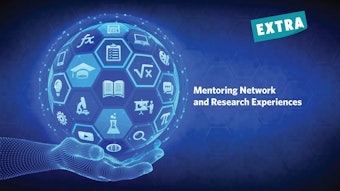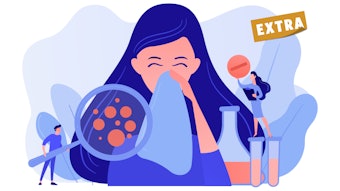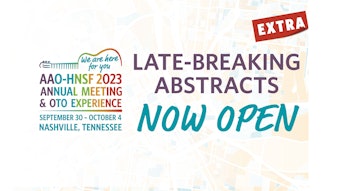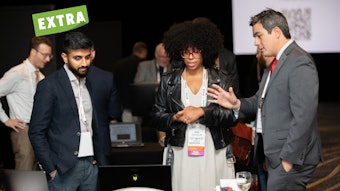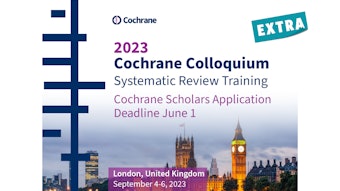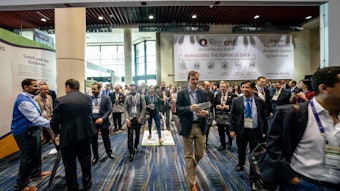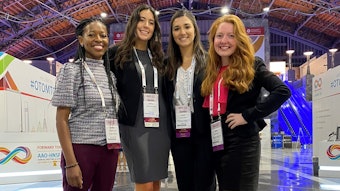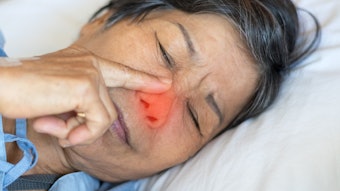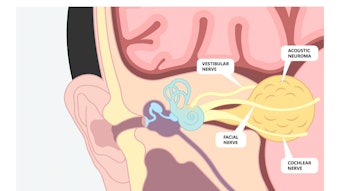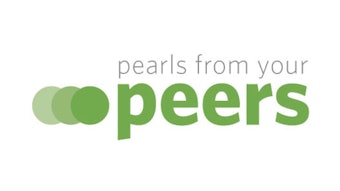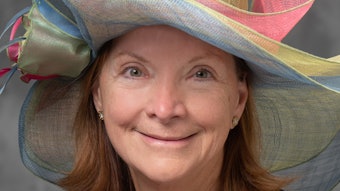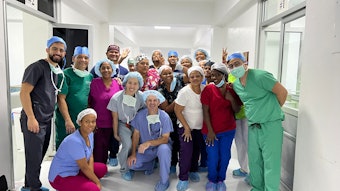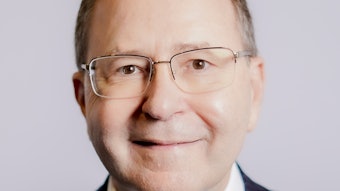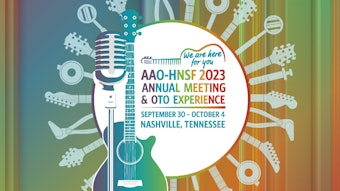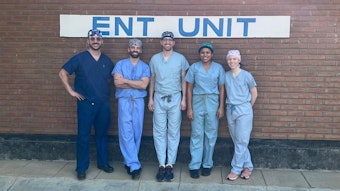Investing in the Future of Otolaryngology
Hear from eight students enrolled in the mENTor program who also matched to otolaryngology in March 2023.
Introduction by Lee D. Eisenberg, MD, MPH
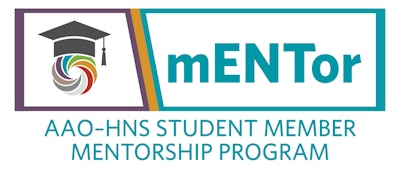
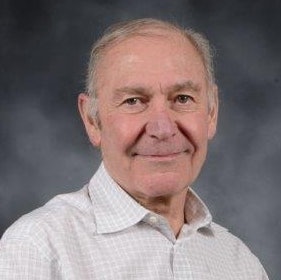 Lee D. Eisenberg, MD, MPH
Lee D. Eisenberg, MD, MPH
The mENTor program matches mentors with students on a first-come, first-served basis. The mentor and student determine how (by phone, email, in person, or virtually) and how often to communicate. We encourage you to become a mENTor.
Our student members have told us how much they value the guidance and advice of practicing physicians on their journey to otolaryngology. Hear from a few students, enrolled in the mENTor program, who also matched to otolaryngology in March 2023.
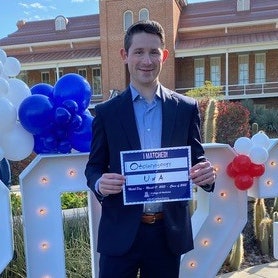 Zachary Ellwell
Zachary Ellwell
I am a fourth-year medical student from the University of Arizona College of Medicine - Tucson. In March 2023 I matched in otolaryngology at my home program in Tucson, Arizona. Otolaryngology captured my interest because of the incredible opportunity to combine extensive knowledge of anatomy with compassionate consideration of complex pathology to make meaningful differences in patients' lives. I didn't complete this journey alone but with many mentors who supported me. However, the person who impacted me most significantly is Patrick Scheffler, MD. Dr. Scheffler has championed my application to otolaryngology from the beginning of our time working together. He was fundamental in helping me advance my research skillset, medical knowledge, and clinical skills. I'm very grateful to him for his continued support of my career and future development. Additionally, I am incredibly thankful for Dr. Bearelly, Dr. Baker, and the other members of the University of Arizona Otolaryngology program. I couldn't be happier to join this incredible team of outstanding physicians this summer.
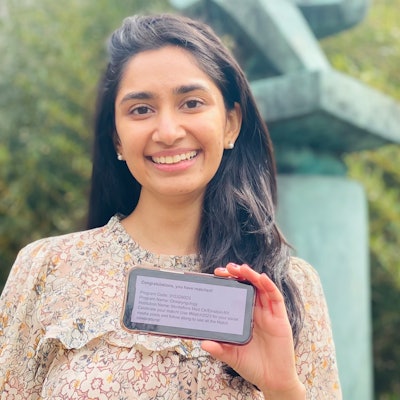 Soumya Gupta
Soumya Gupta
I matched at Montefiore Medical Center. When I initially did not match into otolaryngology last year, I was fortunate to receive a lot of help with reapplying. One mentor who helped me succeed was Dr. Michele Carr at my home program, the University at Buffalo. From the moment I received last year’s match results, she helped me improve weak aspects of my application, especially through research, presentations, and building more connections. I am so grateful for her and everyone else who helped me get to this point, and I cannot wait to embark on a career in otolaryngology!
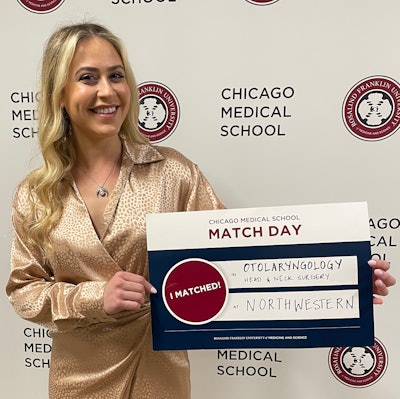 Lexie Anne Kessler
Lexie Anne Kessler
The mENTor program paired me with Dr. Lee Eisenberg. Dr. Eisenberg is a revered, well-connected, and knowledgeable ENT and mentor. At the AAO-HNSF 2021 Annual Meeting & OTO Experience, he introduced me to many otolaryngologist-head and neck surgeons who were more than happy to assist me in my journey to otolaryngology residency. A year and a half later, Dr. Eisenberg helped me obtain a residency interview with a program I was interested in. The mENTor program is highly effective in connecting students with ENT faculty, especially for students without a home program. This ultimately opened doors to opportunities that helped me get into otolaryngology residency at McGaw Medical Center of Northwestern University.
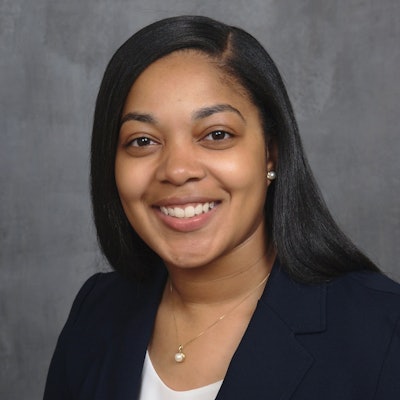 Monet Cordella McCalla
Monet Cordella McCalla
As the first physician in my family and attending a medical school without a home program, finding mentorship and sponsorship was critical in my process. It wasn't until nearly the end of my second year of medical school when I learned what the field of otolaryngology entailed. I was initially drawn to the impact on patients' quality of life that was unique to the field. In retrospect, it feels like my experiences invariably led me to otolaryngology—from global health experiences in high school, to my first research project in college dissecting the cochlea of mice. When I decided to commit to ENT, I did everything I could. Participating in the Academy's mENTor program and several others, in addition to attending several away rotations, was instrumental to my success. I ended up matching into my dream program at the University of Wisconsin - Madison. Born and raised in Little Haiti, Florida, as a young African-American girl, I would have never imagined that I would be accomplishing all my dreams, and this is just the beginning.
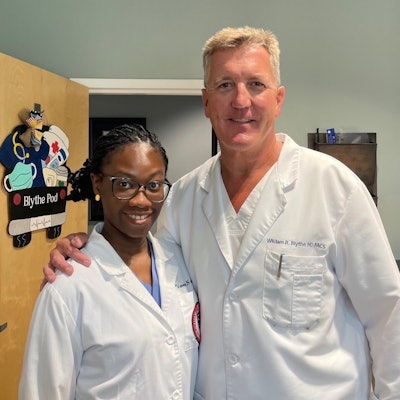 Vanessa Nwaiwu (left) and William R. Blythe, MD (right).
Vanessa Nwaiwu (left) and William R. Blythe, MD (right).
I was drawn to otolaryngology after shadowing local otolaryngologists in my community. I always felt rejuvenated after shadowing and could not curb my curiosity when it came to otolaryngology. I would find myself smiling when among the patients we are privileged to care for. I decided to join the Academy as a student member. I learned even more about our amazing specialty through the medical student section on the Academy website. I attended webinars organized by the Academy for medical students. The information provided in those webinars truly encouraged me to apply even though I did not have a home program. I received valuable mentorship through the Academy’s mENTor program. My first otolaryngology rotation with Dr. William Blythe, whom I met through the Academy, sealed the deal for me. Dr. Blythe embodied everything I wanted to be as a surgeon and as a physician. I successfully matched into otolaryngology at Montefiore Medical Center/Albert Einstein College of Medicine. I look forward to training to contribute to the advancement of our field over the next five years and beyond.
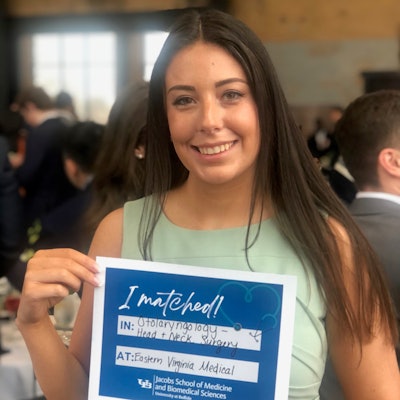 Kristina Powers
Kristina Powers
I am absolutely thrilled to match into otolaryngology at Eastern Virginia Medical School. I was drawn to the complexities of head and neck anatomy early on in my medical school career and have since been fascinated by the avenues for research in all the subspecialties and the ability to significantly improve our patients’ lives. My mentors (through my home program and the mENTor program) have been vital in my success. They helped me and gave me feedback every step of the way. They also inspired my interest in mentorship, and I can't wait to help others through this process.
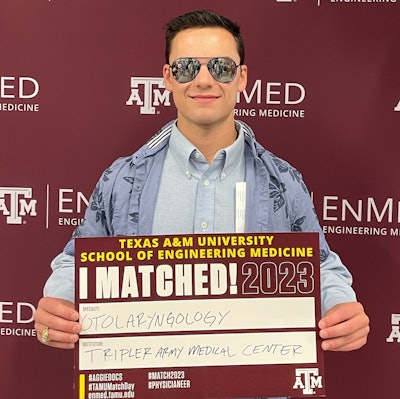 Kenneth Sims
Kenneth Sims
I’m a fourth-year med student at Texas A&M who matched into otolaryngology. I knew this was the specialty for me during my third year of medical school when I shadowed my mentor, Dr. Eugene Alford, in clinic and the OR. He was happy, calm, and confident. His patients and staff loved him, and he just seemed very fulfilled. And I think having him as a mentor increased my odds of matching many different ways, even beyond a strong letter. My home program is Houston Methodist Hospital, which just started its own residency last year, but I participated in the military match and will do residency at Tripler Army Medical Center in Honolulu, Hawaii.
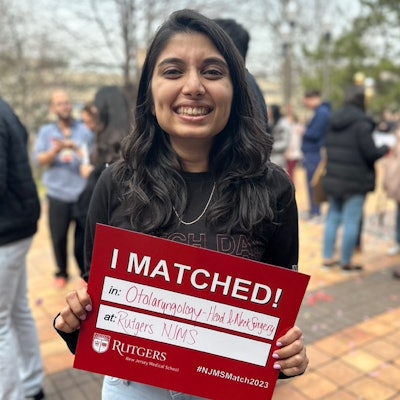 Sudeepti Vedula
Sudeepti Vedula
I'm so excited to begin my career in otolaryngology as a resident in July. I am a current student at Rutgers New Jersey Medical School (NJMS) and matched into my home program at Rutgers NJMS. Throughout medical school, I had many mentors who helped foster my love of and passion for otolaryngology. By guiding me through research projects, my sub-internship rotations, and interview preparation, my mentors helped me reach my goals for residency. My interest in otolaryngology started early in medical school through research projects but was cemented while on my third-year clerkships. The variety within otolaryngology fascinates me—the ability to manage an unstable airway one day and to drill a mastoid bone the next has me enamored with the field. In the next five years, I aspire to develop my skills as an otolaryngologist, learning from the mentors who helped me reach this point in my career.
For more AAO-HNS Medical Student resources, go to https://www.entnet.org/get-involved/student-programs/medical-student-resources/.
